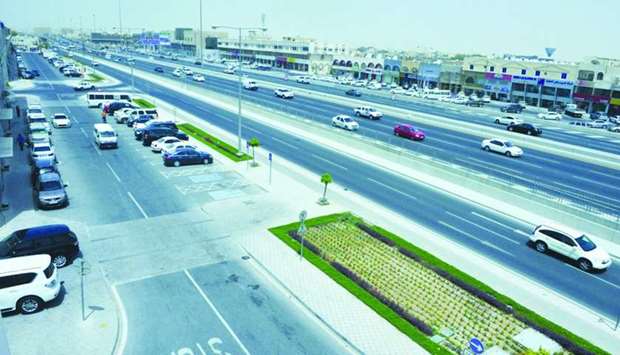Qatar’s real GDP has been projected to rebound and grow at 2.5% in both 2021 and 2022, according to the International Monetary Fund.
In its latest World Economic Outlook, the IMF noted Qatar’s real GDP will plunge into negative territory and see a -4.5% change this year.
In a July update, the IMF said it expected GCC growth to be negative this year by 7.3%, and it's both in the oil sectors as well as also in the non-oil sector. In terms of impact on budget deficit and external account, those two sectors are the most affected, the Fund said.
The IMF said it expects deficits to reach levels of 8% to 10% on average this year.
“But the good news is the non-oil fiscal balance is showing more resiliency than the overall balance. Of course, those countries were affected by the return on capital flows that we saw in the beginning of the crisis, but they regained access to international capital markets and they were able to finance at relatively acceptable rates with ample demand their financing need for this year.”
On GCC economic support measures in view of the Covid-19 pandemic, the IMF noted, “GCC countries have introduced three types of packages, one is a fiscal package to support livelihood of people mostly it was in form of cash transfer, reduction in some bills, defer of tax payments. This was the first element of their response.
“The second element of their response was to support a certain number of economic sectors by extending liquidity and financing support through central banks.”
In July, the IMF had noted, “When we look at the GCC, we need to look at some of the key sectors that have been pillars of the diversification, and some of those sectors were affected, for example, tourism, real estate, airline transportation logistics, and those would require to maintain for a certain period, the level of measures, but making sure that those measures are well targeted and also they're temporary. And this is the name of the game and what is needed today, in parallel with preparing for a stronger recovery.
“It's a recovery where gradually we see in the non-oil sector a moving up into high value-add type of activities where technology will play an important role. We expect also that this will give an opportunity to streamline some of the public entities and to make them more productive, and allow the private sector to gain an additional space in the economy.
“This also can be done by looking at the support to SMEs, which was one of the issues of the past and to see how access to finance can be expanded here in this area. Importantly, is to make sure that over the medium term that this process of reducing the dependence on oil and oil cycle will be maintained,” the IMF said.
In a July update, the IMF said it expected GCC growth to be negative this year by 7.3%, and it's both in the oil sectors as well as also in the non-oil sector. In terms of impact on budget deficit and external account, those two sectors are the most affected, the Fund said.
The IMF said it expects deficits to reach levels of 8% to 10% on average this year.
“But the good news is the non-oil fiscal balance is showing more resiliency than the overall balance. Of course, those countries were affected by the return on capital flows that we saw in the beginning of the crisis, but they regained access to international capital markets and they were able to finance at relatively acceptable rates with ample demand their financing need for this year.”
On GCC economic support measures in view of the Covid-19 pandemic, the IMF noted, “GCC countries have introduced three types of packages, one is a fiscal package to support livelihood of people mostly it was in form of cash transfer, reduction in some bills, defer of tax payments. This was the first element of their response.
“The second element of their response was to support a certain number of economic sectors by extending liquidity and financing support through central banks.”
In July, the IMF had noted, “When we look at the GCC, we need to look at some of the key sectors that have been pillars of the diversification, and some of those sectors were affected, for example, tourism, real estate, airline transportation logistics, and those would require to maintain for a certain period, the level of measures, but making sure that those measures are well targeted and also they're temporary. And this is the name of the game and what is needed today, in parallel with preparing for a stronger recovery.
“It's a recovery where gradually we see in the non-oil sector a moving up into high value-add type of activities where technology will play an important role. We expect also that this will give an opportunity to streamline some of the public entities and to make them more productive, and allow the private sector to gain an additional space in the economy.
“This also can be done by looking at the support to SMEs, which was one of the issues of the past and to see how access to finance can be expanded here in this area. Importantly, is to make sure that over the medium term that this process of reducing the dependence on oil and oil cycle will be maintained,” the IMF said.


